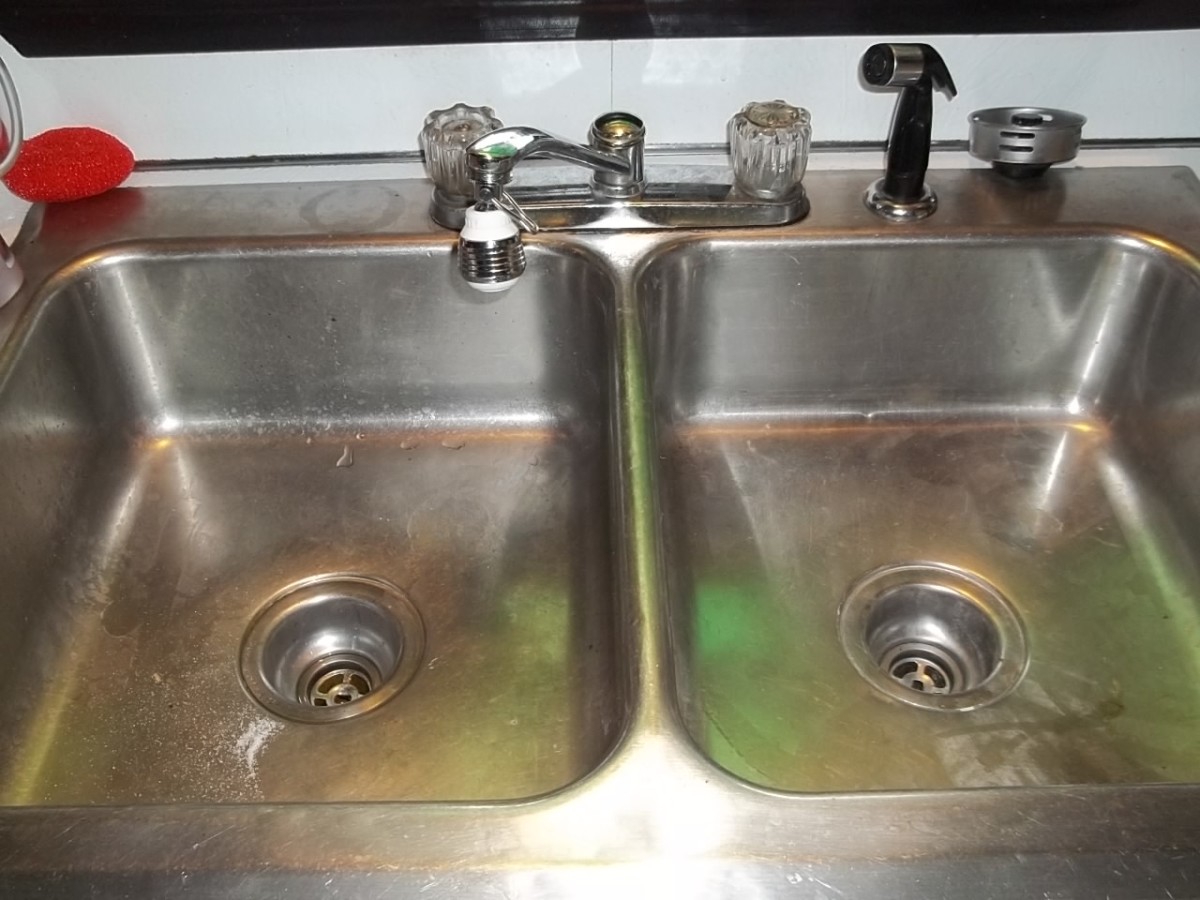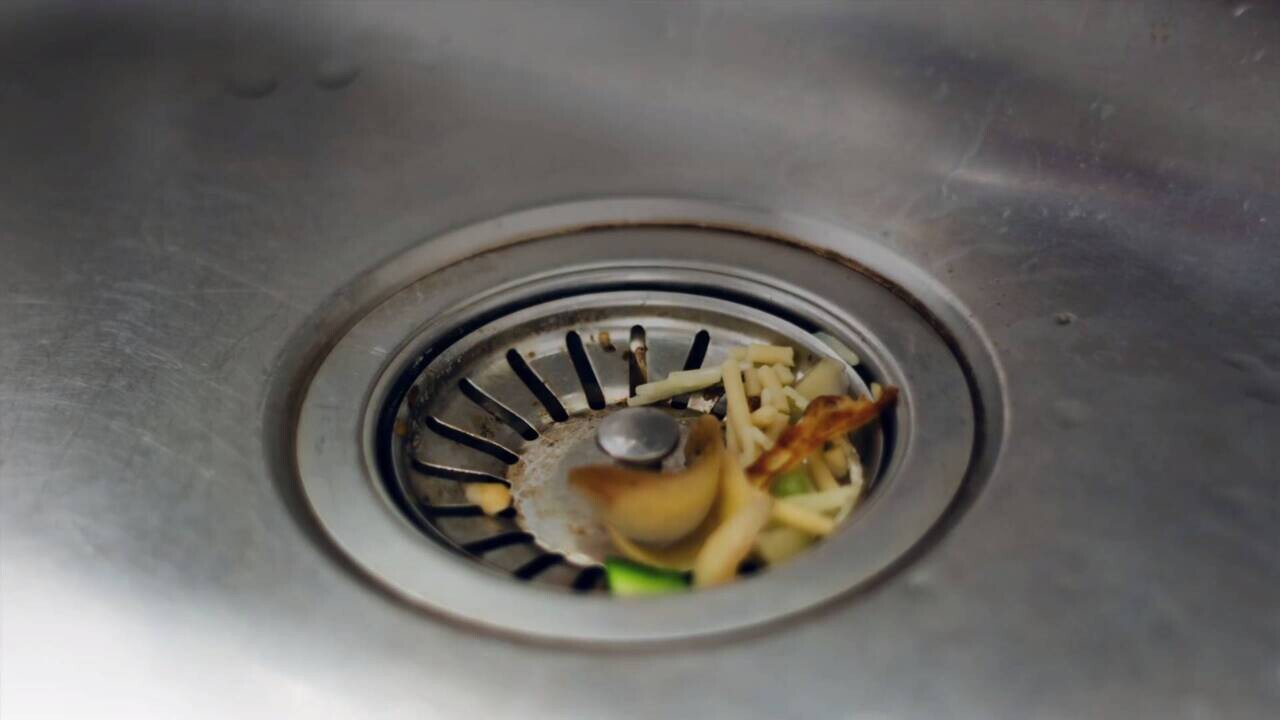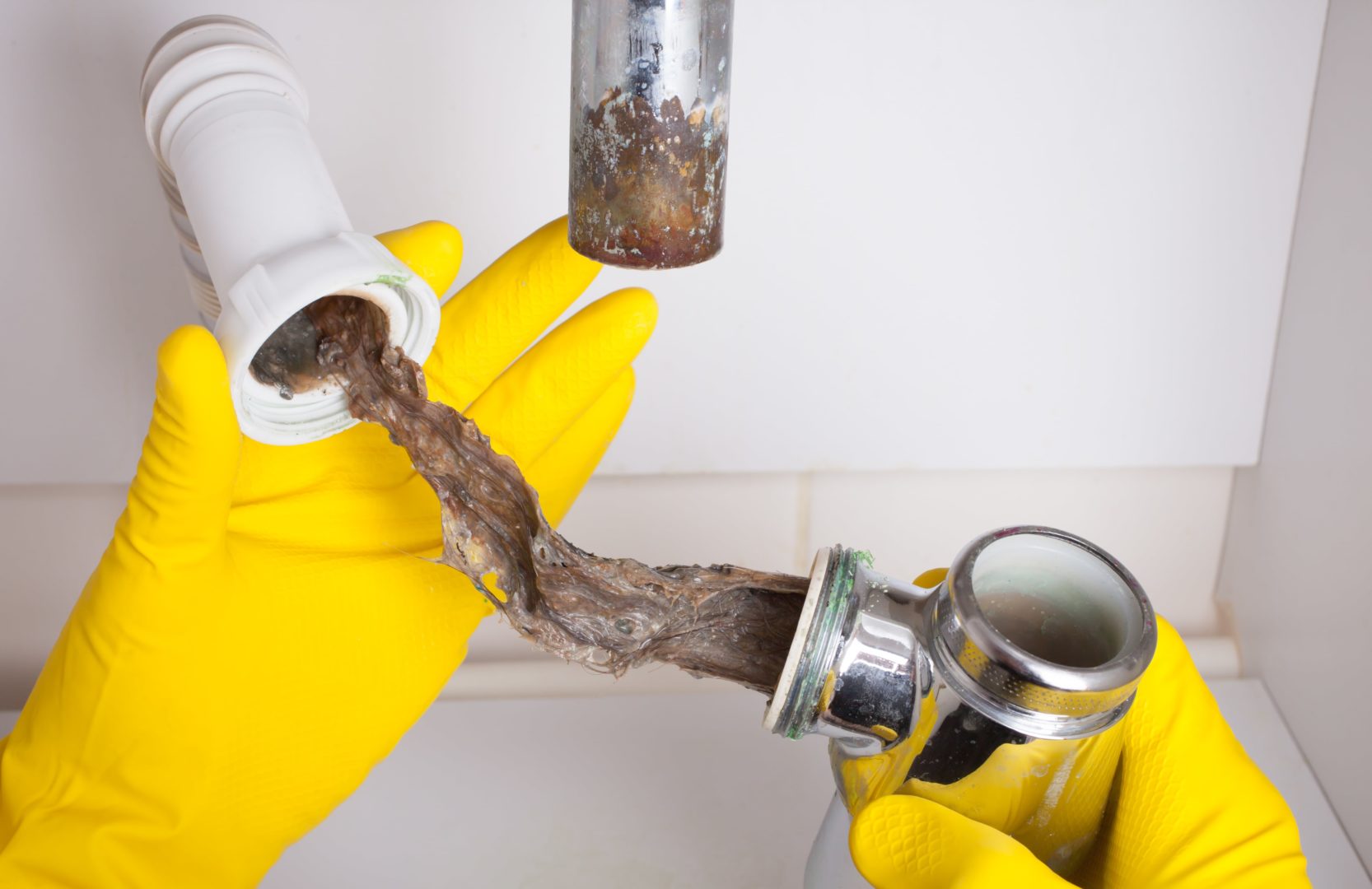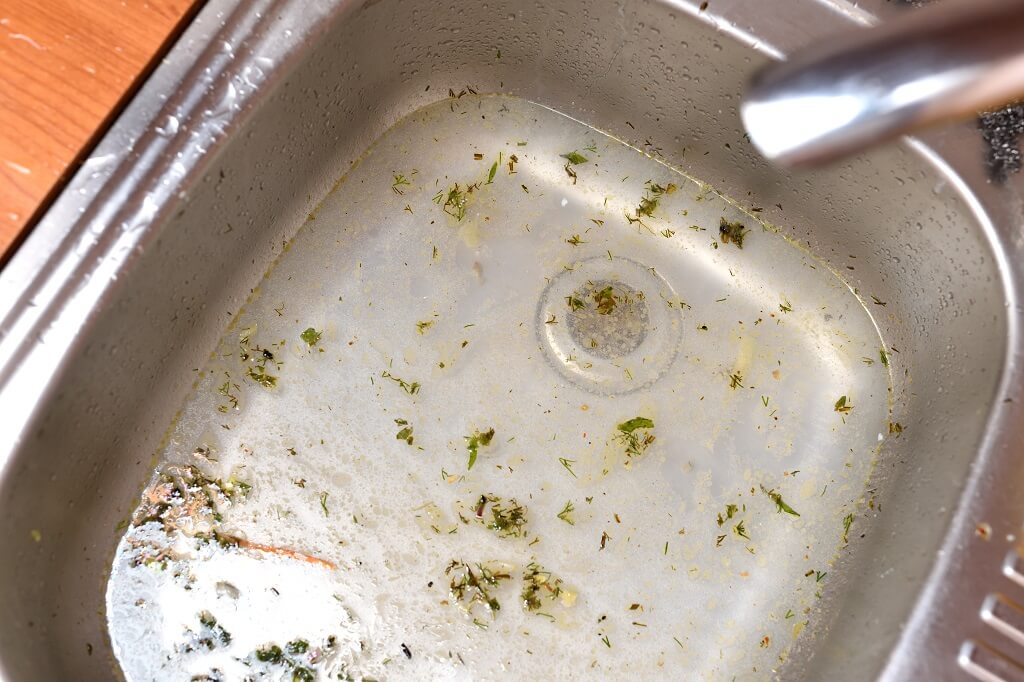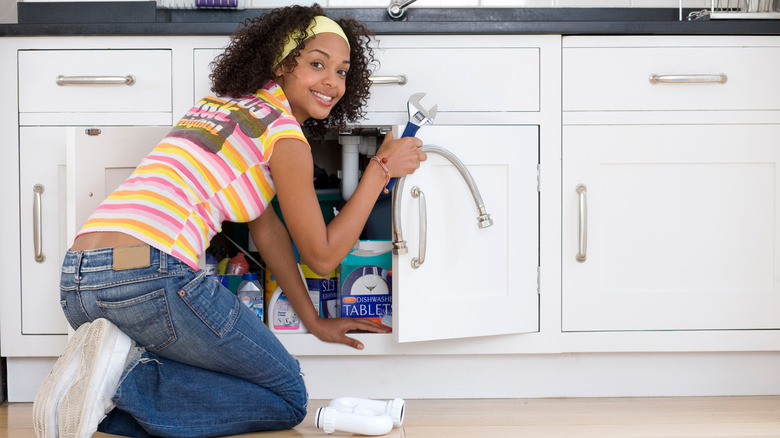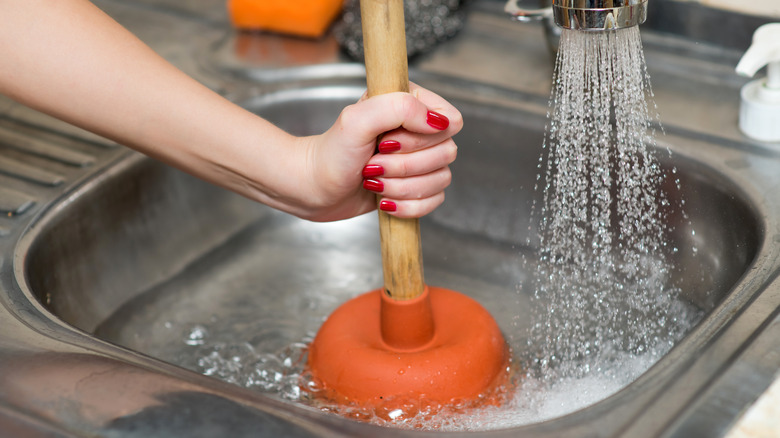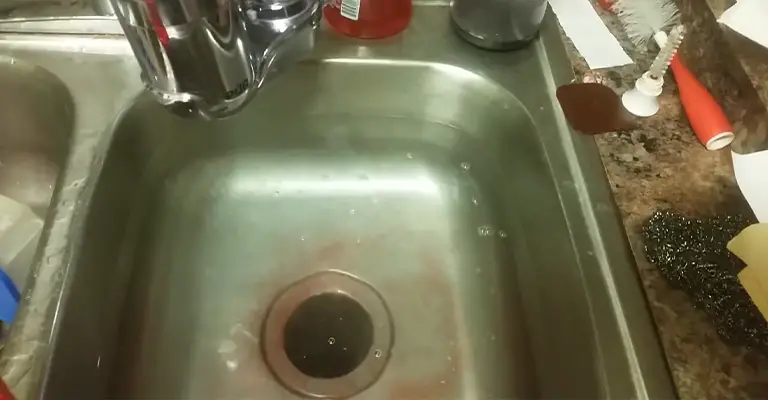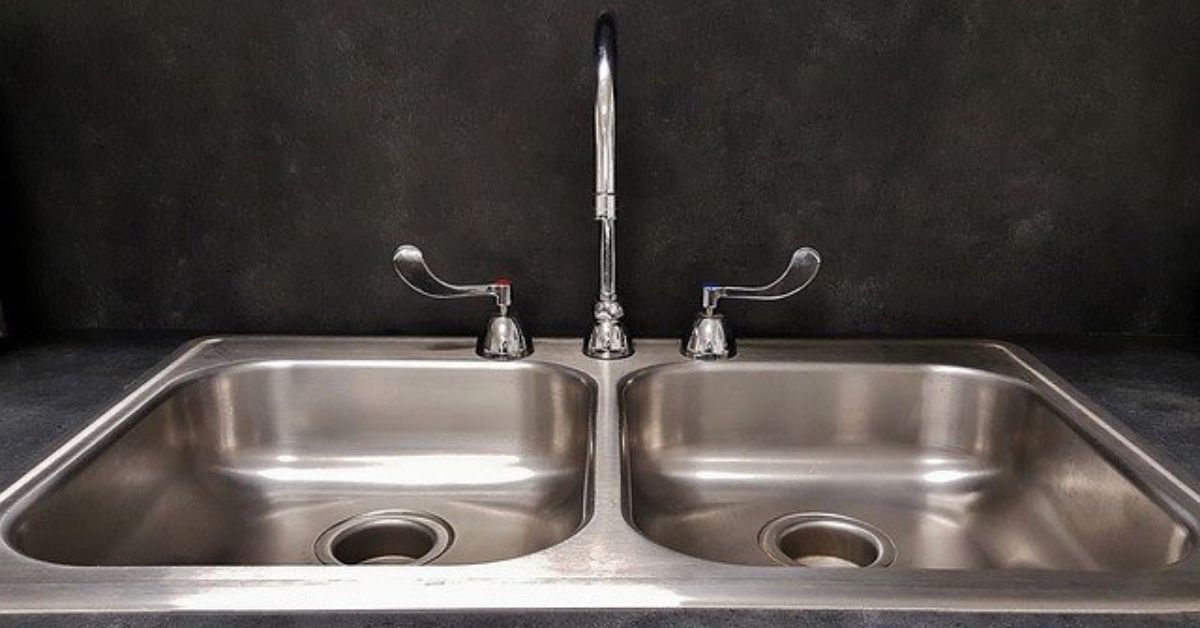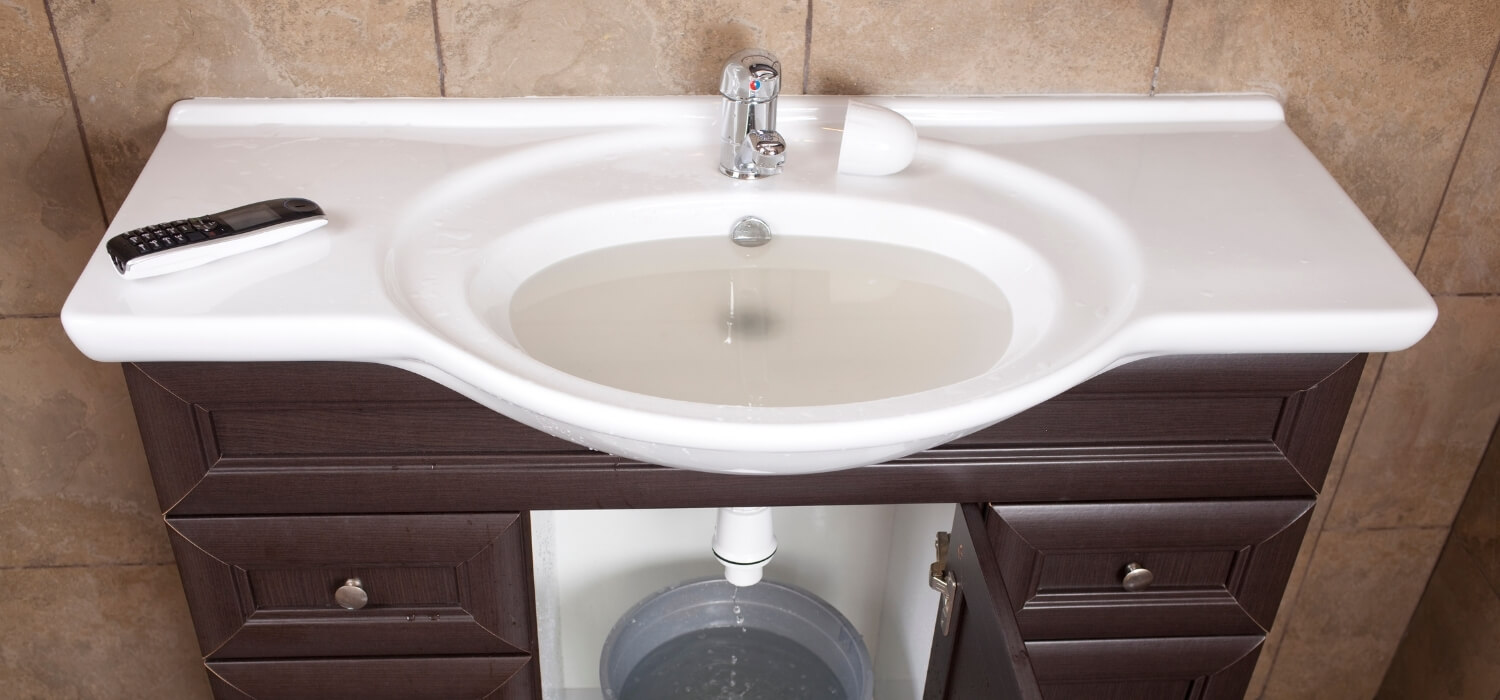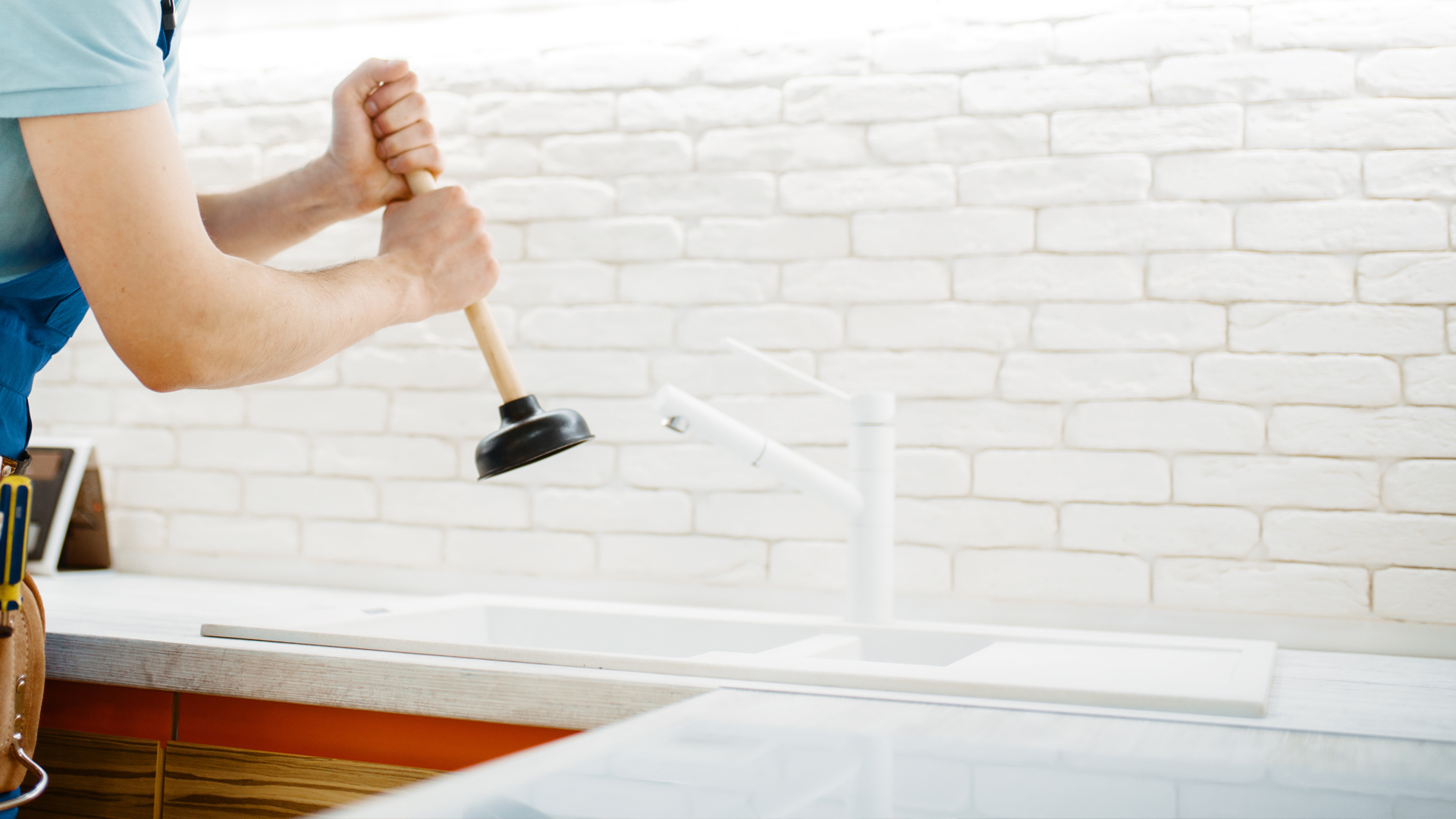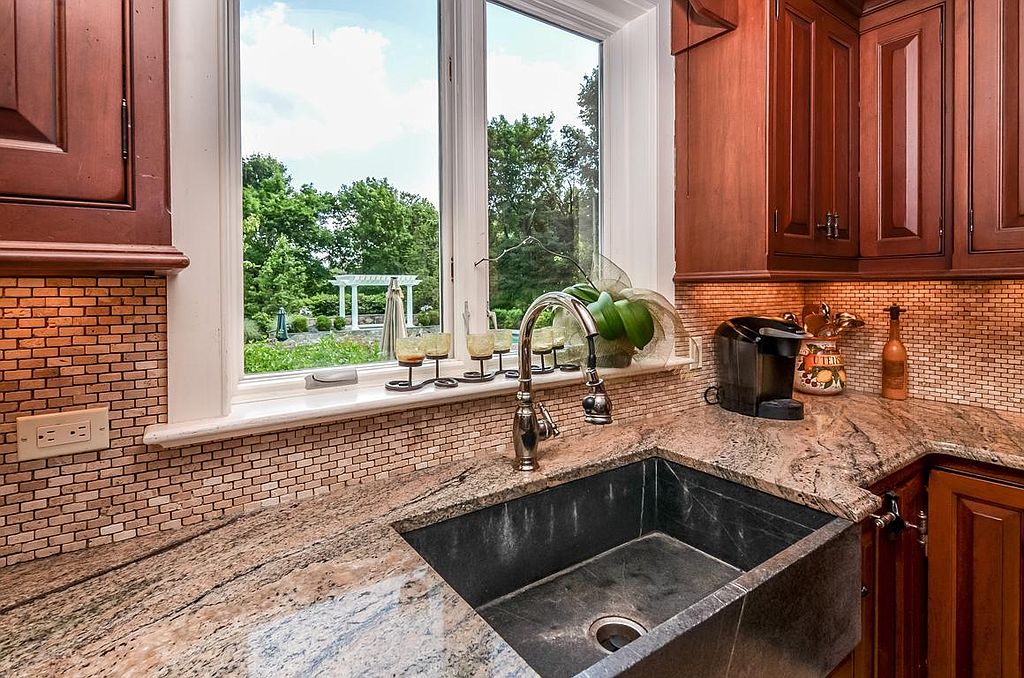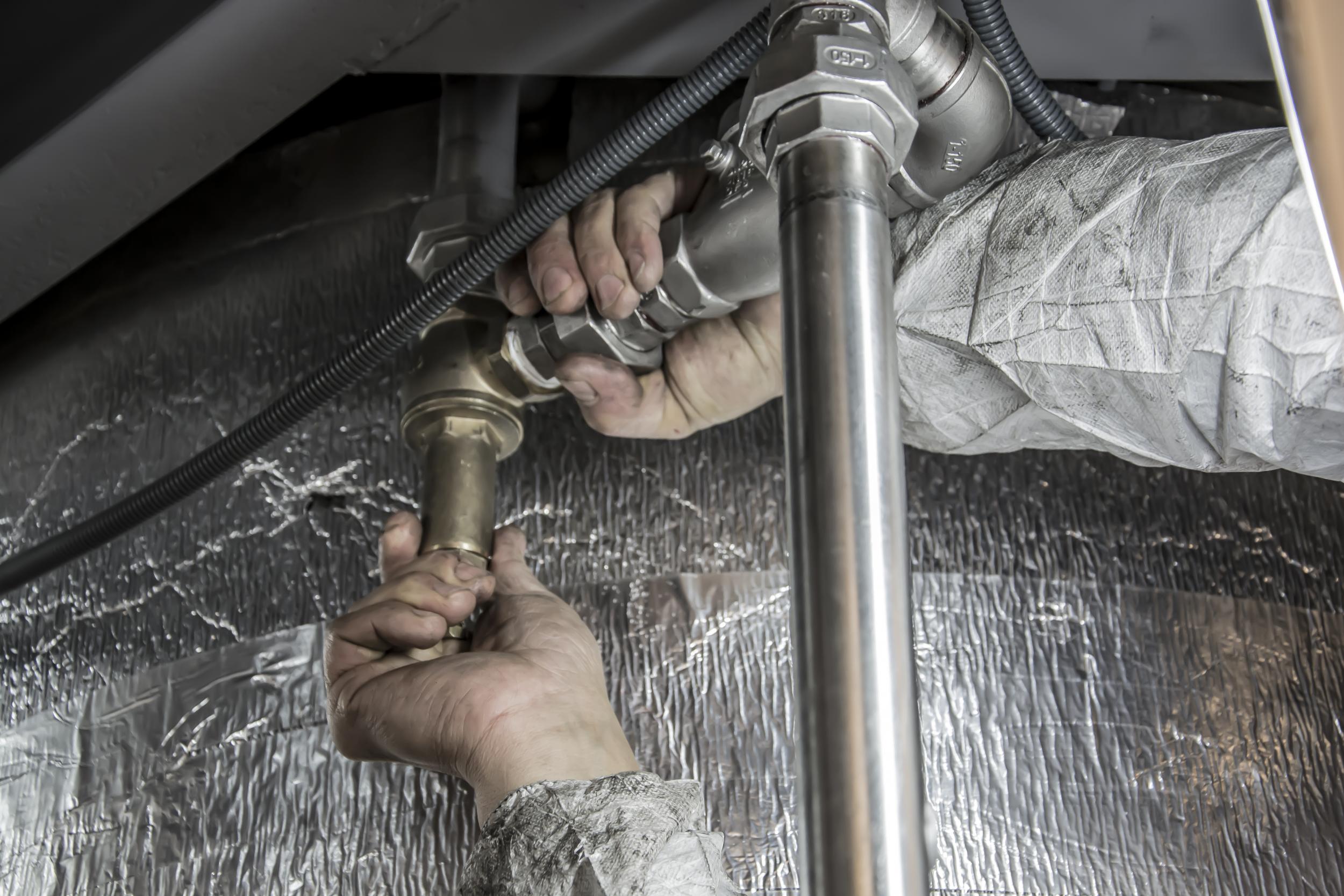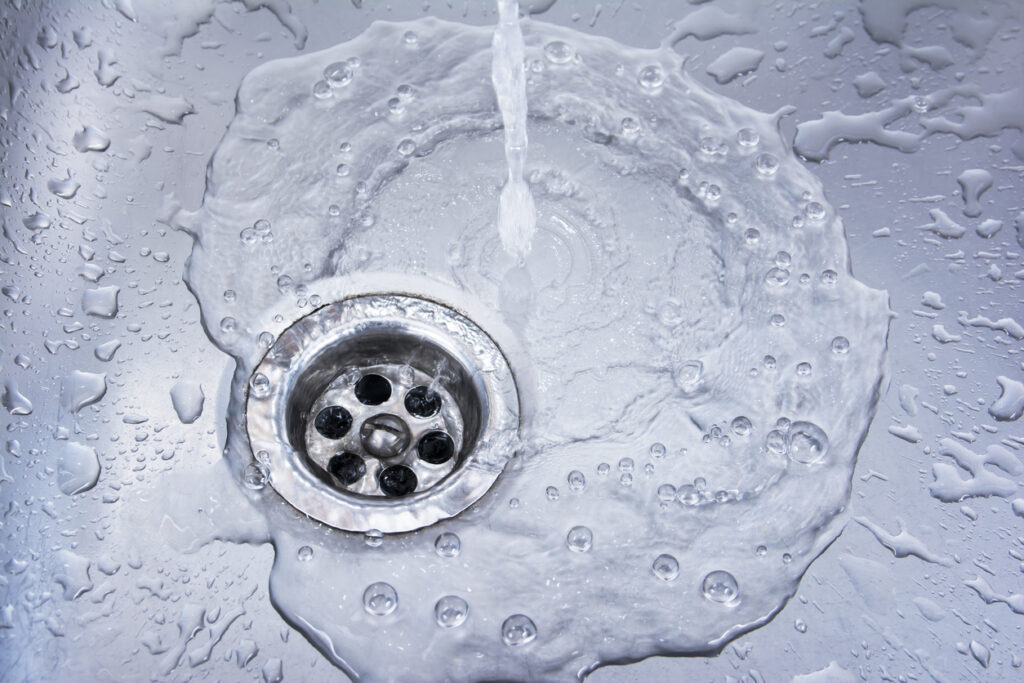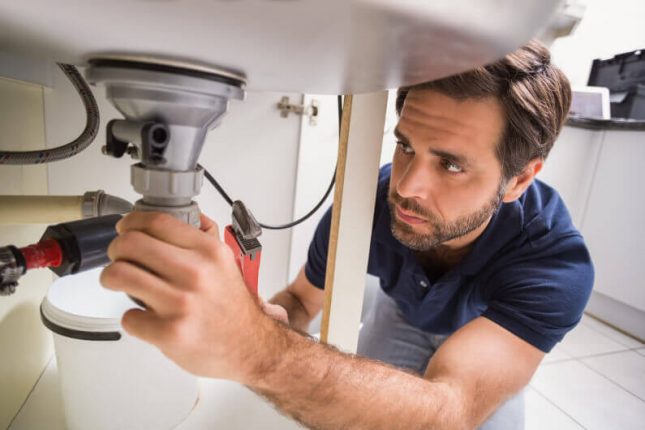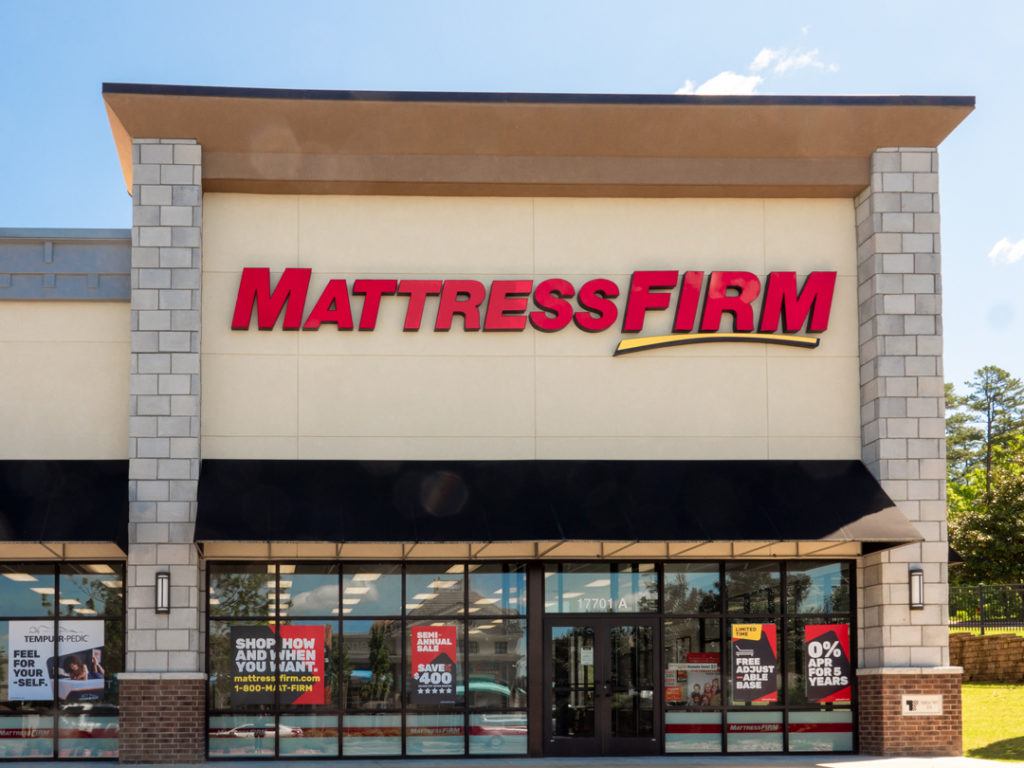Are you tired of standing in a pool of water every time you do the dishes? A slow draining kitchen sink can be a frustrating and messy problem. But fear not, because fixing it may be easier than you think. Start by removing any visible debris from the drain, such as food scraps or hair. If that doesn't solve the issue, try one of these five DIY solutions.1. How to Fix a Slow Draining Kitchen Sink
1. Baking Soda and Vinegar: This natural and inexpensive method can help break down and flush out any gunk clogging your sink. Pour half a cup of baking soda down the drain, followed by a cup of vinegar. Let it sit for 15-20 minutes before flushing with hot water. 2. Hot Water and Dish Soap: If you have a grease buildup, hot water and dish soap can help dissolve and clear it. Boil a pot of water and add a few tablespoons of dish soap. Pour the mixture down the drain and let it sit for a few minutes before running hot water. 3. Plunger: Yes, the same tool you use for a clogged toilet can also unclog a kitchen sink. Make sure to cover the overflow hole with a wet cloth and plunge away. 4. Plumbing Snake: For more stubborn clogs, a plumbing snake can be effective. Insert it into the drain and twist it until you feel the clog loosen. Then, pull it out and run hot water to flush out the debris. 5. Wet/Dry Vacuum: If you have a wet/dry vacuum, you can use it to suck out the clog from the drain. Just make sure to create a tight seal around the drain opening.2. 5 Ways to Unclog a Slow Draining Kitchen Sink
If the above methods don't work, you may need to physically remove the clog. Here are two DIY solutions that can help. 1. Remove the P-Trap: The P-trap is the U-shaped pipe under your sink. Place a bucket under it, then use pliers to unscrew and remove it. You may find the clog inside, or you can use a wire hanger to push it out. 2. Use a Drain Snake: A drain snake, or auger, is a long, flexible tool with a spiral end. Insert it into the drain and twist it to catch the clog. Once you feel it loosen, pull it out and run hot water to flush.3. DIY Solutions for a Slow Draining Kitchen Sink
Now that your sink is unclogged, it's important to know what may have caused the issue in the first place. Some common causes of a slow draining kitchen sink include: - Food scraps and grease buildup - Hair and soap scum - Foreign objects, such as a lost earring or toy - Broken or clogged pipes - Hard water deposits4. Common Causes of a Slow Draining Kitchen Sink
Prevention is always better than cure. To avoid future slow draining kitchen sinks, try these tips: - Use a sink strainer to catch food scraps and hair - Avoid pouring grease down the drain - Regularly clean your sink and drain with hot water and dish soap - Run hot water down the drain after each use to prevent buildup5. Tips for Preventing a Slow Draining Kitchen Sink
If your sink is still not draining properly, it may be time to call in a professional plumber. They have the tools and expertise to diagnose and fix the issue, which may include: - Hydro jetting: Using high-pressure water to clear out clogs and buildup - Camera inspection: Inserting a small camera into the pipes to locate the clog or damage - Pipe replacement: In case of broken or severely clogged pipes6. Professional Methods for Fixing a Slow Draining Kitchen Sink
If you're experiencing a slow draining kitchen sink, here are a few things to check before trying any DIY solutions: - Is the issue isolated to just one sink or affecting multiple drains in your home? - Is the slow draining accompanied by any strange noises or foul odors? - Have you recently used a harsh chemical drain cleaner? - Are there any visible leaks or damage to the pipes?7. Troubleshooting a Slow Draining Kitchen Sink
Using a plunger to unclog a kitchen sink may seem strange, but it can be effective. Here's how to do it: 1. Cover the overflow hole with a wet cloth. 2. Place the plunger over the drain and make sure it creates a tight seal. 3. Push and pull the plunger a few times to create suction. 4. If the clog is loosened, water should start to drain. If not, try plunging a few more times or move on to a different method.8. How to Use a Plunger to Fix a Slow Draining Kitchen Sink
If you prefer to use natural ingredients instead of harsh chemicals, here are a few more remedies to try: - Salt and baking soda: Mix equal parts of salt and baking soda and pour it down the drain. Let it sit for a few hours before flushing with hot water. - Boiling water and salt: Pour a pot of boiling water down the drain, followed by half a cup of salt. Let it sit for a few minutes before running hot water. - Vinegar and salt: Mix half a cup of vinegar with half a cup of salt and pour it down the drain. Let it sit for an hour before flushing with hot water.9. Natural Remedies for a Slow Draining Kitchen Sink
While a slow draining kitchen sink can often be fixed with DIY solutions, there are some cases where you should call a professional plumber, such as: - Multiple clogged drains in your home - Recurring clogs despite DIY efforts - Foul odors coming from the drain - Slow draining accompanied by gurgling or bubbling noises - Visible leaks or damage to the pipes Don't let a slow draining kitchen sink ruin your day. With these tips and methods, you can easily fix the issue and prevent it from happening again. And remember, when in doubt, it's always best to consult a professional plumber for a thorough diagnosis and repair.10. Signs You Need to Call a Plumber for a Slow Draining Kitchen Sink
Why Is Your Kitchen Sink Draining Slowly?

Common Causes of a Slow-Draining Kitchen Sink
 If your kitchen sink is taking longer than usual to drain, there could be a few different reasons for this issue. One common cause is a buildup of grease and food particles in the drain pipe. Over time, this can create a clog that restricts water flow. Another possible cause is a bent or damaged drain pipe, which can impede the flow of water and cause it to drain slowly. Additionally, a malfunctioning garbage disposal or a blockage in the sink's P-trap can also be to blame for a slow-draining kitchen sink.
If your kitchen sink is taking longer than usual to drain, there could be a few different reasons for this issue. One common cause is a buildup of grease and food particles in the drain pipe. Over time, this can create a clog that restricts water flow. Another possible cause is a bent or damaged drain pipe, which can impede the flow of water and cause it to drain slowly. Additionally, a malfunctioning garbage disposal or a blockage in the sink's P-trap can also be to blame for a slow-draining kitchen sink.
How to Fix a Slow-Draining Kitchen Sink
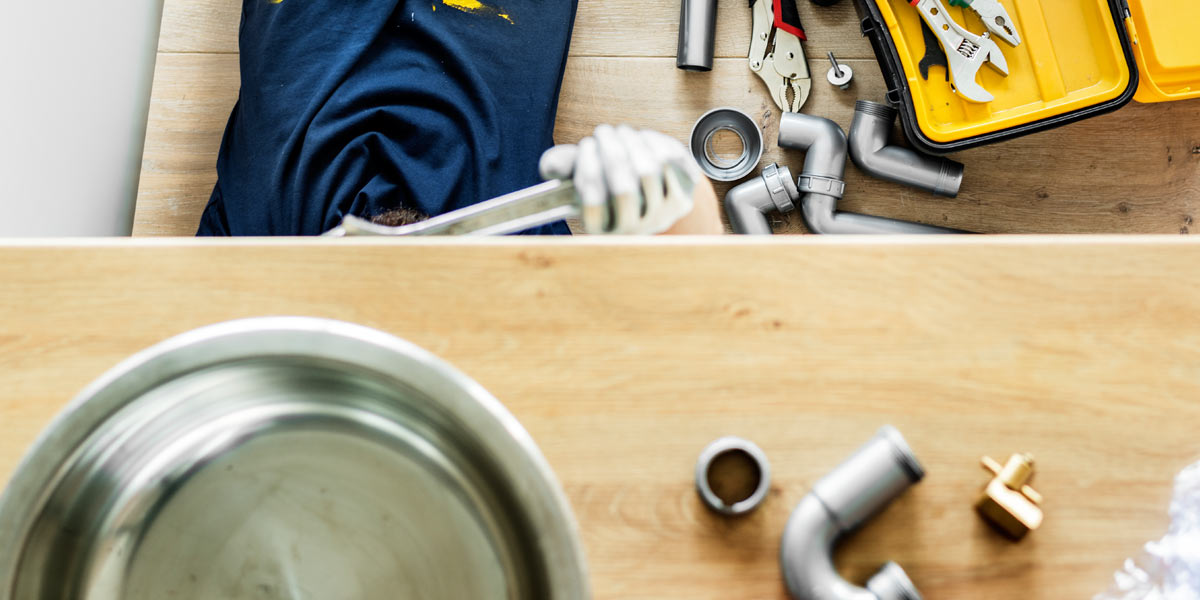 Fortunately, there are several solutions to fix a slow-draining kitchen sink. One option is to use a plunger to dislodge any clogs in the drain pipe. Be sure to cover the overflow drain with a towel or rag before plunging to create a tighter seal. If the plunger method doesn't work, you can try using a drain snake to remove any stubborn clogs. For a more natural approach, you can pour a mixture of hot water and baking soda down the drain, followed by vinegar to help break up any buildup. Let it sit for a few minutes before flushing it out with hot water.
Fortunately, there are several solutions to fix a slow-draining kitchen sink. One option is to use a plunger to dislodge any clogs in the drain pipe. Be sure to cover the overflow drain with a towel or rag before plunging to create a tighter seal. If the plunger method doesn't work, you can try using a drain snake to remove any stubborn clogs. For a more natural approach, you can pour a mixture of hot water and baking soda down the drain, followed by vinegar to help break up any buildup. Let it sit for a few minutes before flushing it out with hot water.
Preventing Future Slow Drains
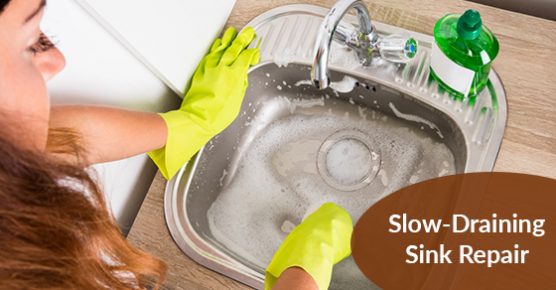 To avoid dealing with a slow-draining kitchen sink in the future, it's essential to take preventative measures. Avoid pouring cooking grease or oil down the drain, as it can solidify and cause clogs. Use a strainer in your sink to catch food particles and empty it regularly. Additionally, try to avoid putting large chunks of food down the garbage disposal, as they can get stuck and cause problems. Regularly flushing your drain with hot water can also help prevent buildup and keep your sink draining smoothly.
In Conclusion
A slow-draining kitchen sink can be a frustrating inconvenience, but it's a common issue that can be easily fixed. By understanding the common causes and taking preventative measures, you can keep your sink draining smoothly and avoid dealing with clogs in the future. Whether you choose to use a plunger, a drain snake, or a natural cleaning solution, addressing the issue promptly can save you time, money, and frustration. With these tips, you can keep your kitchen sink functioning properly and maintain a clean and efficient house design.
To avoid dealing with a slow-draining kitchen sink in the future, it's essential to take preventative measures. Avoid pouring cooking grease or oil down the drain, as it can solidify and cause clogs. Use a strainer in your sink to catch food particles and empty it regularly. Additionally, try to avoid putting large chunks of food down the garbage disposal, as they can get stuck and cause problems. Regularly flushing your drain with hot water can also help prevent buildup and keep your sink draining smoothly.
In Conclusion
A slow-draining kitchen sink can be a frustrating inconvenience, but it's a common issue that can be easily fixed. By understanding the common causes and taking preventative measures, you can keep your sink draining smoothly and avoid dealing with clogs in the future. Whether you choose to use a plunger, a drain snake, or a natural cleaning solution, addressing the issue promptly can save you time, money, and frustration. With these tips, you can keep your kitchen sink functioning properly and maintain a clean and efficient house design.













